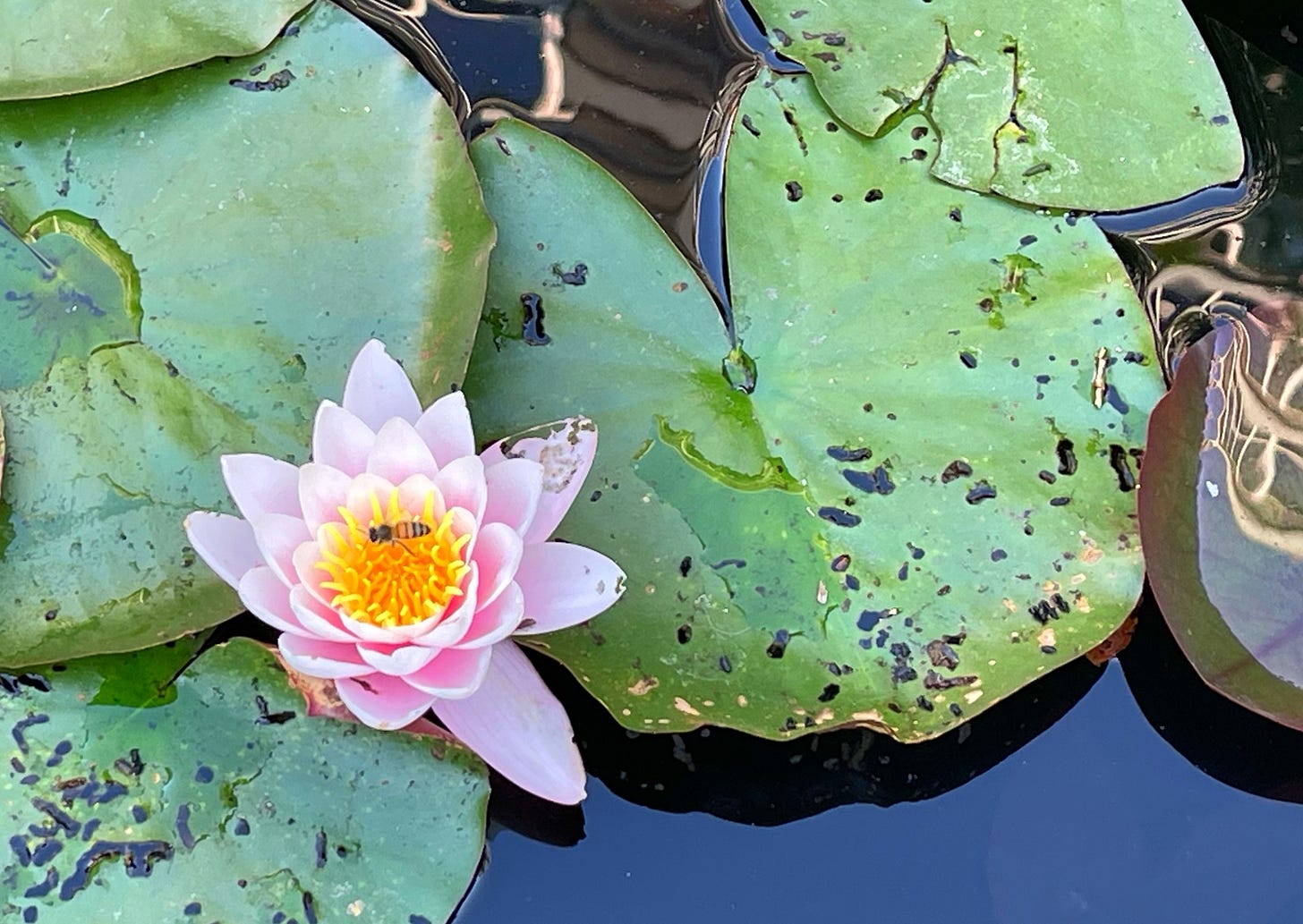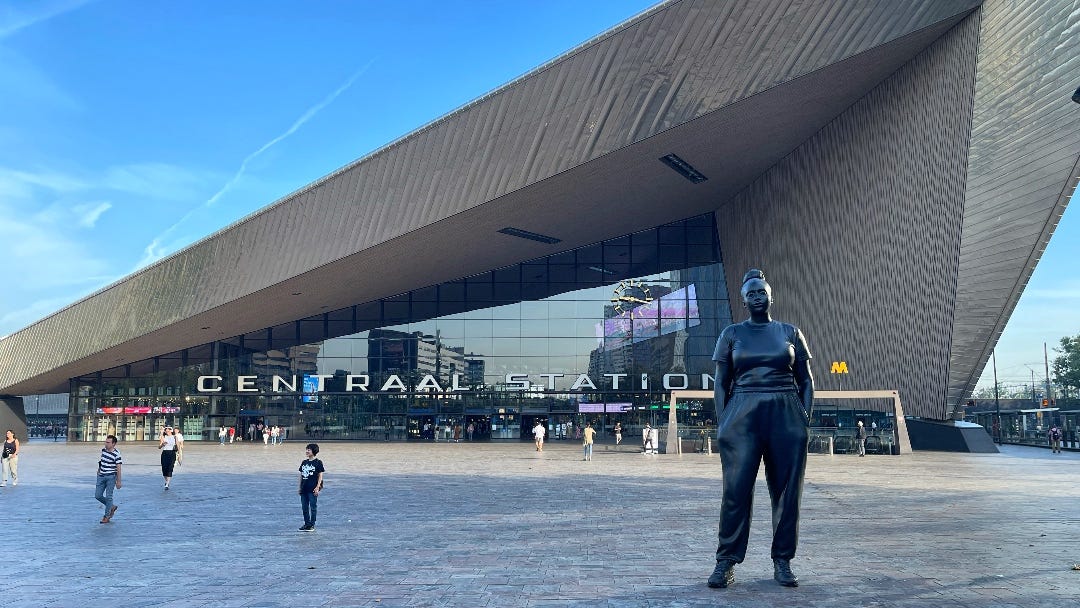This morning, I stepped into the garden and was greeted by the promise of a new day. Between my kitchen, which you can see on the left, and the neighbor's house on the right, I enjoyed a breathtaking composition in the sky of orange hues. In the following hours, I would witness a slow but permanent change in this sunrise painting the sky while driving to Rotterdam, where I would take the fast train to Paris.
While much of my route mirrored the story I shared yesterday, today's path led northward, away from my island's solitude and towards the bustling western expanse of the Netherlands. The initial landmark on this voyage was the Brouwersdam, a structure born in the same year as me, 1965; it links the islands of Schouwen and Goeree. I have stopped at the dam before to capture the sunrise and again couldn't resist pausing to catch the sun's golden glow over the mussel farms.
Having left early, I traveled stress-free. So I took my time to follow the slow movements of a solitary ship toiling among the mussels, gathering this local delicacy I enjoyed many years ago in pre-vegetarian days. Just behind me, an occasional car races by, but ahead of me is the peace and solitude of this water arm between the islands that used to have a direct connection to the sea until that situation was no longer considered safe after the devastating flood of 1953.
The sun continued ascent as I took a moment to fully enjoy my first sip of coffee at a small roadside café named Voyage Food. With gratitude to the coffee supporters who fuel my adventures, I gazed upon mist-kissed fields, a silent testament to the serene beauty of the Dutch countryside.
I arrived in Rotterdam, a city reshaped by the ravages of World War II and that has lost much of its traditional Dutch charm. Yet, in its transformation, it had birthed a vibrant modern metropolis adorned with architectural marvels. The reflection of an apartment block in a tranquil pond offered an early glimpse of this bold spirit. It might appear commonplace now, but in the 1950s, the concept of high-rise buildings surrounding a green courtyard, where children could play without the looming threat of passing cars, was revolutionary. Here, it stood, a testament to innovation, while a curious wasp danced among the water lilies.
My next stop was Rotterdam station, where a colossal statue of the casual onlooker observed the bustling comings and goings of the city. Soon after, I embarked on the Thalys, the swift train that whisked me away from Rotterdam.
As I write this, I'm just leaving Brussels, knowing that Paris lies just around the bend. This train journey, traversing three countries, is a mere two-and-a-half hours. Oh, how I love the marvels of modern train travel.
Why are governments still subsidizing fossil fuels?
It is an hour-long drive from The Hague to my home island. The radio plays soft rock tunes from the seventies until the newsreader takes over. I increase the volume a bit: "New research shows that fossil subsidies in the Netherlands amount to a staggering 37.5 billion euros annually". I hear that the researchers used the same definitions for subsidy in …
Navigating the Camino and Climate Complexity
An hour belated, the clock strikes nine, and I am enjoying my first cafe con leche on the small terrace of La Casa del Abuelo on one of Madrid's bustling avenues. A sign reminds visitors that the House of the Grandfather has served its clients here since 1906. Cars race by, and the sun is gaining strength.…














You must, definitely, write a book. For all reasons.
“The purpose of a storyteller is not to tell you how to think, but to give you questions to think about.”
— Brandon Sanderson
Happy journey and thanks for your stories.